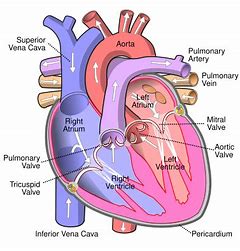
10 Heart-Healthy Herbs: Natural Ways to Support Cardiovascular Health
Are you looking for natural ways to boost your heart health? Incorporating certain herbs into your diet may help support cardiovascular wellness and potentially reduce the risk of heart-related issues. In this article, we’ll explore ten powerful herbs that have been associated with heart health benefits.
1. Garlic: Nature’s Heart Protector
Garlic has been used for centuries as both a culinary ingredient and a medicinal herb. Rich in allicin, garlic may help:
- Lower blood pressure
- Reduce cholesterol levels
- Improve blood circulation
Key takeaway: Add fresh garlic to your meals or consider a garlic supplement for potential heart health benefits.
2. Hawthorn: The Cardiovascular Tonic
Hawthorn berries, leaves, and flowers have been traditionally used to support heart health. This herb may:
- Strengthen heart muscle
- Improve blood flow to the heart
- Help regulate heart rhythm
Key takeaway: Hawthorn tea or supplements may offer cardiovascular support, but consult with a healthcare provider before use.
3. Ginger: Anti-Inflammatory Powerhouse
Ginger’s potent anti-inflammatory properties make it a valuable herb for heart health. It may help:
- Reduce inflammation in blood vessels
- Lower blood pressure
- Decrease cholesterol levels
Key takeaway: Incorporate fresh ginger into your diet or try ginger tea for potential heart benefits.
4. Turmeric: Golden Spice for Heart Health
Curcumin, the active compound in turmeric, has been studied for its cardiovascular benefits. It may:
- Reduce inflammation
- Improve endothelial function
- Help lower cholesterol
Key takeaway: Add turmeric to your cooking or consider a curcumin supplement for heart health support.
5. Cinnamon: Sweet Spice with Heart Benefits
Cinnamon isn’t just for flavoring; it may also support heart health by:
- Helping to reduce blood sugar levels
- Lowering bad cholesterol (LDL)
- Potentially reducing blood pressure
Key takeaway: Sprinkle cinnamon on your morning oatmeal or add it to smoothies for a heart-healthy boost.

6. Hibiscus: Floral Support for Your Heart
Hibiscus tea has gained attention for its potential cardiovascular benefits, including:
- Lowering blood pressure
- Reducing bad cholesterol (LDL)
- Supporting overall heart health
Key takeaway: Enjoy a cup of hibiscus tea daily to potentially support your heart health.
7. Cayenne Pepper: Spice Up Your Heart Health
Capsaicin, the compound that gives cayenne its heat, may offer heart health benefits by:
- Improving circulation
- Potentially lowering blood pressure
- Supporting healthy cholesterol levels
Key takeaway: Add a dash of cayenne to your meals or try a capsaicin supplement for potential cardiovascular support.
8. Green Tea: Antioxidant-Rich Heart Helper
Green tea is packed with polyphenols and catechins that may support heart health by:
- Reducing inflammation
- Improving cholesterol levels
- Supporting healthy blood pressure
Key takeaway: Enjoy several cups of green tea daily or consider a green tea extract supplement.
9. Motherwort: The Heart’s Guardian
Motherwort has been traditionally used to support heart health and may:
- Help regulate heart rhythm
- Reduce anxiety and stress
- Support overall cardiovascular function
Key takeaway: Motherwort tincture or tea may offer heart health benefits, but consult with a healthcare provider before use.
10. Olive Leaf: Mediterranean Heart Support
Olive leaf extract has gained attention for its potential cardiovascular benefits, including:
- Supporting healthy blood pressure
- Improving cholesterol levels
- Providing antioxidant protection
Key takeaway: Consider olive leaf extract supplements or tea for potential heart health support.
Conclusion
While these herbs show promise in supporting heart health, it’s essential to remember that they should complement, not replace, a heart-healthy lifestyle. Always consult with a healthcare professional before adding new herbs or supplements to your routine, especially if you have existing heart conditions or are taking medications.
By incorporating these heart-healthy herbs into your diet and lifestyle, you may be taking a natural step towards supporting your cardiovascular well-being. Remember, a balanced diet, regular exercise, stress management, and regular check-ups with your doctor are all crucial components of maintaining a healthy heart.
As always, it’s best to consult with a healthcare professional before making significant changes to your diet, especially if you have existing health conditions or are taking medications. Remember, a balanced diet rich in a variety of fruits and vegetables, combined with regular exercise and other healthy lifestyle habits, remains the cornerstone of good health and disease prevention.